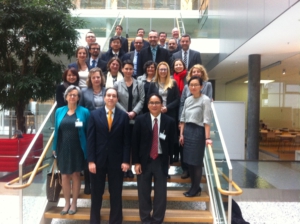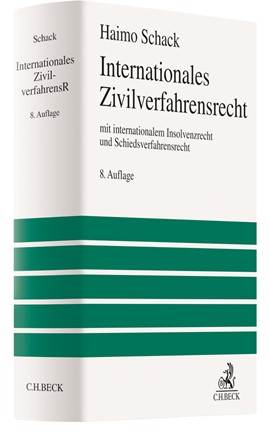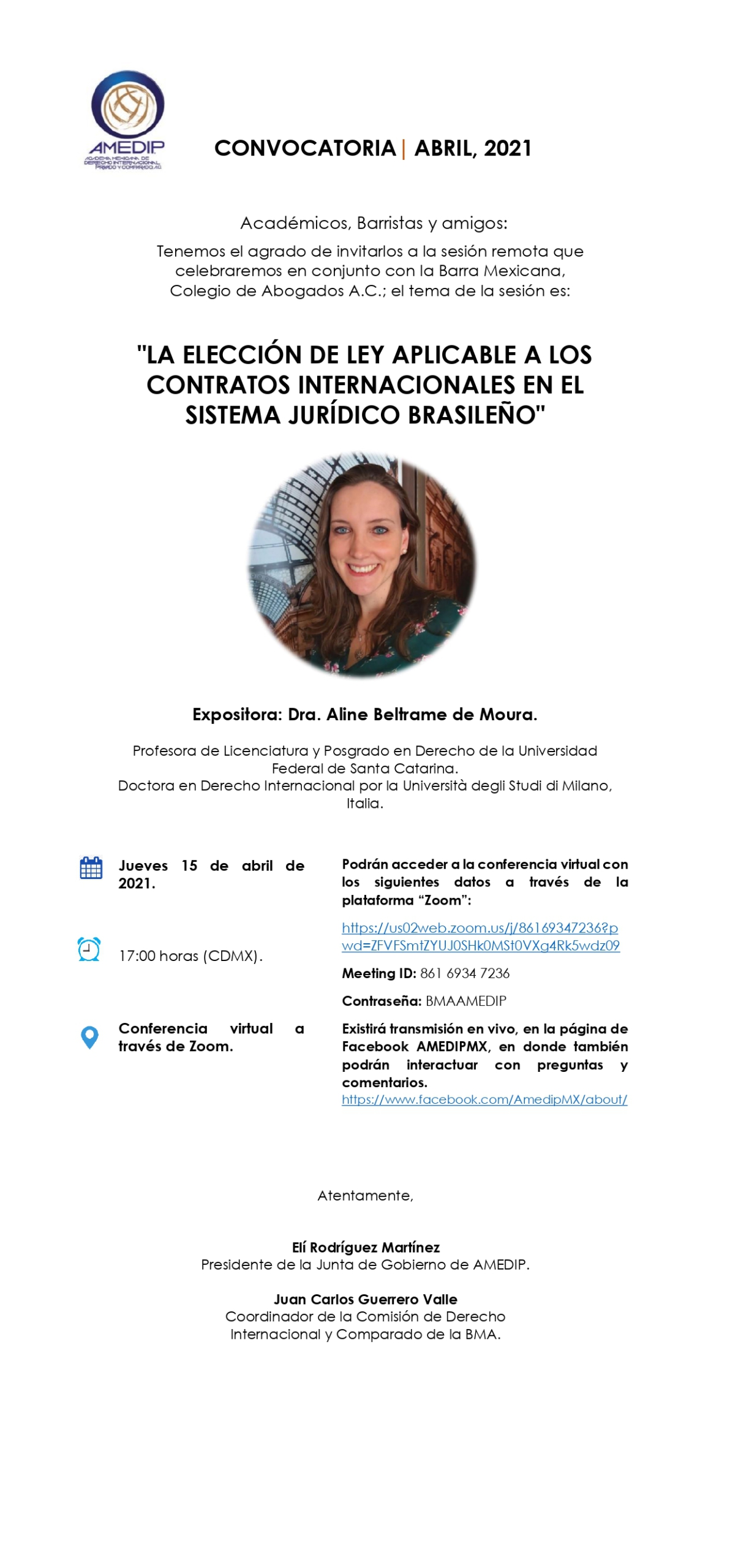Written by Toshiyuki Kono, Pedro de Miguel Asensio and Axel Metzger
The International Law Association’s Committee on “Intellectual Property and Private International Law” has finished its work with the adoption and publication of the “Kyoto Guidelines on Intellectual Property and Private International Law”. The Guidelines are the outcome of an international cooperation of a group of 36 scholars from 19 jurisdictions lasting for ten years under the auspices of ILA. The Kyoto Guidelines have been approved by the plenary of the ILA 79th Biennial Conference, held (online) in Kyoto on December 13, 2020. The Guidelines provide soft-law principles on the private international law aspects of intellectual property, which may guide the interpretation and reform of national legislation and international instruments, and may be useful as source of inspiration for courts, arbitrators and further research in the field. Different from older regional projects, the Kyoto Guidelines have been prepared by experts from different world regions. The Guidelines have now been published with extended comments as a special issue of the Open Access journal JIPITEC: https://www.jipitec.eu.
International Law” has finished its work with the adoption and publication of the “Kyoto Guidelines on Intellectual Property and Private International Law”. The Guidelines are the outcome of an international cooperation of a group of 36 scholars from 19 jurisdictions lasting for ten years under the auspices of ILA. The Kyoto Guidelines have been approved by the plenary of the ILA 79th Biennial Conference, held (online) in Kyoto on December 13, 2020. The Guidelines provide soft-law principles on the private international law aspects of intellectual property, which may guide the interpretation and reform of national legislation and international instruments, and may be useful as source of inspiration for courts, arbitrators and further research in the field. Different from older regional projects, the Kyoto Guidelines have been prepared by experts from different world regions. The Guidelines have now been published with extended comments as a special issue of the Open Access journal JIPITEC: https://www.jipitec.eu.
The ILA Committee on “Intellectual Property and Private International Law” was created in November 2010. Its aim was to examine the legal framework concerning civil and commercial matters involving intellectual property rights that are connected to more than one State and to address the issues that had emerged after the adoption of several legislative proposals in this field in different regions of the world. The work of the Committee was built upon the earlier projects conducted by the Hague Conference of Private International Law as well as several academic initiatives intended to develop common standards on jurisdiction, choice of law and recognition and enforcement of judgments in intellectual property matters.
In the initial stages of the activities of the Committee it was agreed that its overall objective should be to draft a set of model provisions to promote a more efficient resolution of cross-border intellectual property disputes and provide a blueprint for national and international legislative initiatives in the field. Therefore, the focus of its activities has been the drafting of a set of guidelines with a view to provide a valuable instrument of progress concerning private international law aspects raised by intellectual property. Furthermore, the Committee conducted a number of comparative studies and monitored the developments in different jurisdictions around the world. The Committee also worked in collaboration with several international organizations, particularly the World Intellectual Property Organization and the Hague Conference on Private International Law.
The final text of the Guidelines consists of 35 provisions, which are divided in four sections: General Provisions (Guidelines1-2), Jurisdiction (3-18), Applicable Law (19-31) and Recognition and Enforcement of Judgments (Guidelines 32-35). As suggested by the term “Guidelines”, this instrument contains a set of provisions intended to guide the application or reform of private international laws in this field. The Guidelines restate certain well-established foundational principles such as the lex loci protectionis rule and aspire to provide concrete solutions for pressing contemporary problems, in areas such as multi-state infringements and cross-border collective copyright management. In order to make explicit the influence of the previous projects in the field and to facilitate the comparison with them, the short comments are preceded by the reference to the similar provisions adopted previously in the ALI Principles[1], CLIP Principles[2], Transparency Proposal[3] and Joint Korean-Japanese Principles[4]. As an additional instrument to facilitate the uniform interpretation of the Guidelines, the Committee has prepared a set of extended comments to all the provisions.
The Guidelies have now been published together with extended comments written by members of the ILA Committee which explain the background and application of the Guidelines.
[1] American Law Institute, Intellectual Property: Principles Governing Jurisdiction, Choice of Law and Judgments in Transnational Disputes, ALI Publishers, 2008.
[2] European Max Planck Group on Conflict of Laws in Intellectual Property, Conflict of Laws in Intellectual Property (Text and Commentary), OUP, 2013.
[3] Japanese Transparency Proposal on Jurisdiction, Choice of Law, Recognition and Enforcement of Foreign Judgments in Intellectual Property, see the English text in J. Basedow, T. Kono and A. Metzger (eds.), Intellectual Property in the Global Arena – Jurisdiction, Applicable Law, and the Recognition of Judgments in Europe, Japan and the US, Mohr Siebeck, 2010, pp. 394-402.
[4] Joint Proposal by Members of the Private International Law Association of Korea and Japan, see The Quarterly Review of Corporation Law and Society, 2011, pp. 112-163.



 her treat for German-reading friends and colleagues of CoL: On the occasion of
her treat for German-reading friends and colleagues of CoL: On the occasion of 

 International Law” has finished its work with the adoption and publication of the “Kyoto Guidelines on Intellectual Property and Private International Law”. The Guidelines are the outcome of an international cooperation of a group of 36 scholars from 19 jurisdictions lasting for ten years under the auspices of ILA. The Kyoto Guidelines have been approved by the plenary of the ILA 79th Biennial Conference, held (online) in Kyoto on December 13, 2020. The Guidelines provide soft-law principles on the private international law aspects of intellectual property, which may guide the interpretation and reform of national legislation and international instruments, and may be useful as source of inspiration for courts, arbitrators and further research in the field. Different from older regional projects, the Kyoto Guidelines have been prepared by experts from different world regions. The Guidelines have now been published with extended comments as a special issue of the Open Access journal JIPITEC:
International Law” has finished its work with the adoption and publication of the “Kyoto Guidelines on Intellectual Property and Private International Law”. The Guidelines are the outcome of an international cooperation of a group of 36 scholars from 19 jurisdictions lasting for ten years under the auspices of ILA. The Kyoto Guidelines have been approved by the plenary of the ILA 79th Biennial Conference, held (online) in Kyoto on December 13, 2020. The Guidelines provide soft-law principles on the private international law aspects of intellectual property, which may guide the interpretation and reform of national legislation and international instruments, and may be useful as source of inspiration for courts, arbitrators and further research in the field. Different from older regional projects, the Kyoto Guidelines have been prepared by experts from different world regions. The Guidelines have now been published with extended comments as a special issue of the Open Access journal JIPITEC: 